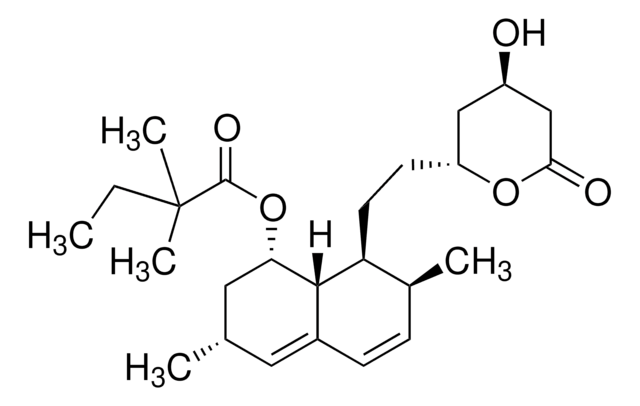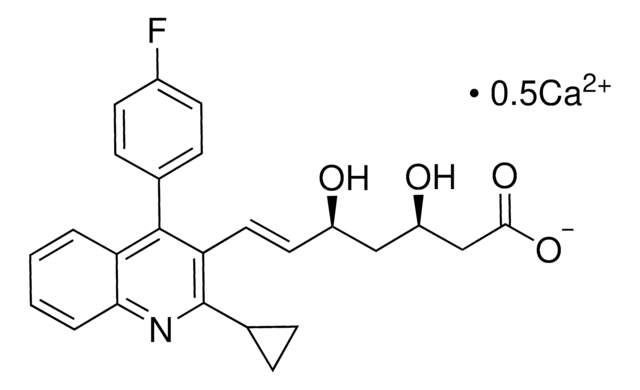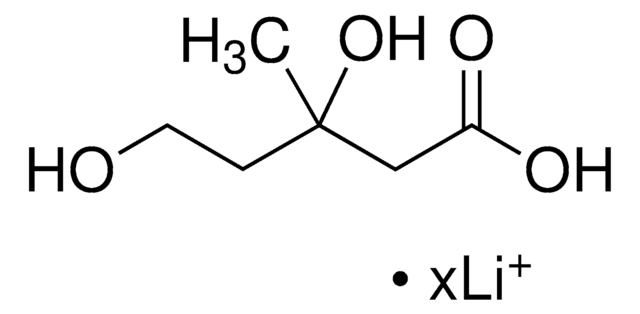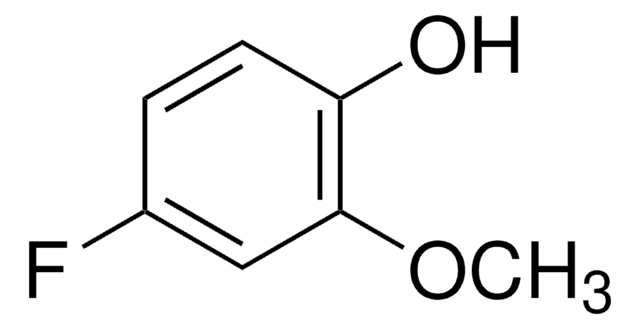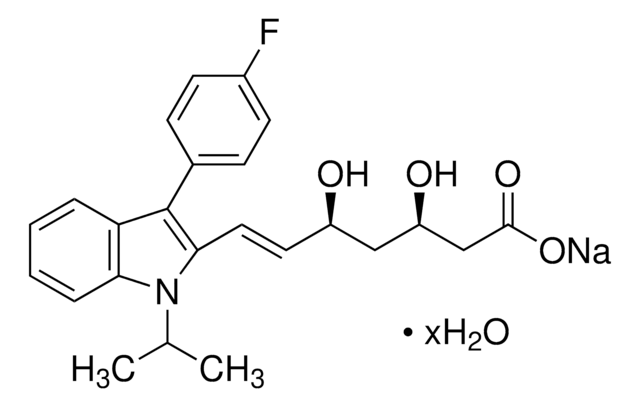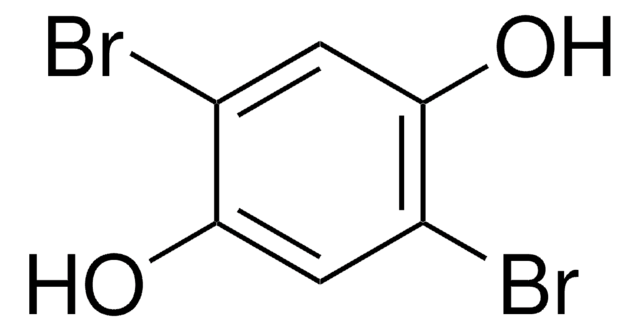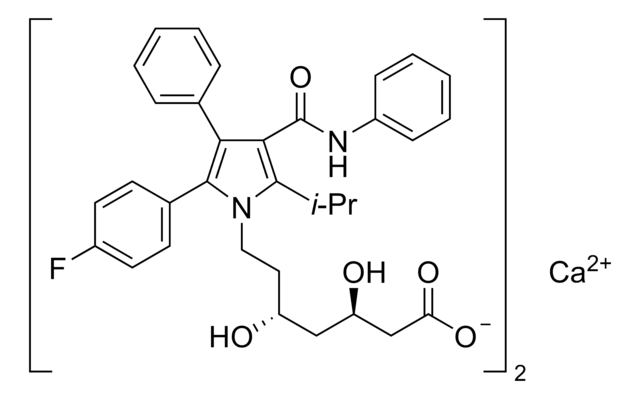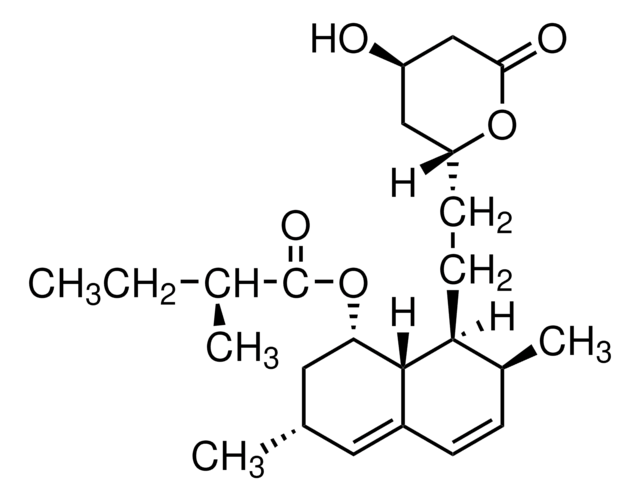SML0005
Cerivastatin sodium salt hydrate
≥98% (HPLC)
Synonym(s):
(3R,5S,6E)-7-[4-(4-Fluorophenyl)-5-(methoxymethyl)-2,6-bis(1-methylethyl)-3-pyridinyl]-3,5-dihydroxy-6-heptenoic acid sodium salt hydrate, Rivastatin hydrate
About This Item
Recommended Products
Quality Level
Assay
≥98% (HPLC)
form
powder
optical activity
[α]/D +18 to +26° in ethanol
storage condition
desiccated
color
white to tan
solubility
H2O: ≥5 mg/mL
originator
Bayer
storage temp.
2-8°C
SMILES string
O.[Na+].COCc1c(nc(C(C)C)c(\C=C\[C@@H](O)C[C@@H](O)CC([O-])=O)c1-c2ccc(F)cc2)C(C)C
InChI
1S/C26H34FNO5.Na.H2O/c1-15(2)25-21(11-10-19(29)12-20(30)13-23(31)32)24(17-6-8-18(27)9-7-17)22(14-33-5)26(28-25)16(3)4;;/h6-11,15-16,19-20,29-30H,12-14H2,1-5H3,(H,31,32);;1H2/q;+1;/p-1/b11-10+;;/t19-,20-;;/m1../s1
InChI key
NJHMEKXCHXHQPP-PZLZTSNUSA-M
General description
Application
Biochem/physiol Actions
Features and Benefits
Storage Class Code
11 - Combustible Solids
WGK
WGK 3
Flash Point(F)
Not applicable
Flash Point(C)
Not applicable
Certificates of Analysis (COA)
Search for Certificates of Analysis (COA) by entering the products Lot/Batch Number. Lot and Batch Numbers can be found on a product’s label following the words ‘Lot’ or ‘Batch’.
Already Own This Product?
Find documentation for the products that you have recently purchased in the Document Library.
Customers Also Viewed
Articles
Randomized controlled clinical studies have suggested 3-hydroxy-3-methylglutaryl coenzyme A (HMG-CoA) reductase inhibitors (statins) are effective in both primary and secondary prevention of cardiovascular disease (CVD) events.
Our team of scientists has experience in all areas of research including Life Science, Material Science, Chemical Synthesis, Chromatography, Analytical and many others.
Contact Technical Service